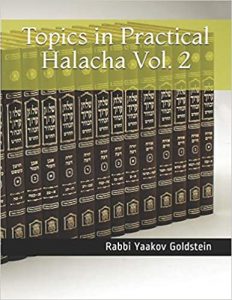*As an Amazon Associate I earn from qualifying purchases.
May a father disinherit the firstborn, or give him an equal portion in the will?
A person is unable to change the laws of inheritance in the form of inheritance; to inherit to one who is not an heir, or to disinherit a rightful heir. This applies whether he is healthy or sick [Shechiv Meira], and whether he makes the change orally or puts it in writing [i.e. a will]. Thus, if a father stated that his son the firstborn will not inherit a double portion, his words are meaningless.[1] This applies whether he said that his firstborn son will inherit like a normal son, or he said the firstborn will not take or inherit a double portion, in all these cases, his words are meaningless.[2] [Likewise, if he said that the other sons will inherit a certain amount, which infringes on the double portion of the firstborn son, his words are meaningless.[3]] Even in an area where the custom is that the firstborn does not receive a double portion, one is to ignore the custom, as it contradicts the Biblical law.[4]
Legal ways of bypassing inheriting a double portion to the firstborn: The above inability to change the inheritance law of the Bechor, only applies if one stated the above disinheritance of the Bechor’s double portion in a wording of “Yerusha/inheritance,” such as one said “My firstborn will not inherit a double portion.” If, however, the father made his statement in a way of a Kinyan and Matana[5], then he does have ability to change the order of inheritance and he may give the firstborn an equal portion of the Matana/Kinyan, or not give him anything at all, and instead give all the assets to the other brothers as a Matana/Kinyan.[6] [Likewise, one may use the method called Shtar Chatzi Zachar, which serves as an IOU addendum to the will, to force the Bechor to get an equal portion just like the other brothers.[7] Practically, this is the common method used today by estate planning attorneys who follow the guidelines of Halacha.] Nonetheless, the Sages were unhappy with one who uses a legally valid method to uproot the inheritance from a rightful heir.[8] Some Poskim[9], however, rule that this does not apply if one uses the legal method to simply equal the portion of the firstborn to that of the other brothers, and not to uproot it entirely.
_____________________________________________________________
[1] Michaber 281:1; Rambam Nechalos 6:3; Mishneh Bava Basar 130a
[2] Michaber 281:4; Rambam Nechalos 6:3
The reason: As the verse states “Lo Yuchal Levaker Es Ben Hahuva.” [Michaber ibid]
[3] Beir Hagoleh 281:9 that the ruling of Michaber 281:3 refers to a case that there is no Bechor
[4] Rama 281:4; Maharik Shoresh 8
[5] By a Shechiv Meira, simply saying the words is considered a Kinyan Matana, while by a Bari [healthy person] an actual Kinyan must be made. [See Aruch Hashulchan 281:1 and 5]
[6] Michaber 281:7 regarding Shechiva Meira; Smeh 281:6 that the same applies for a Bari; Shach 281:4; Beir Hagoleh ibid; Aruch Hashulchan 281:5
[7] See Rama C.M. 281:7; Kesef Hakedoshim 282; This serves as an IOU document, which enforce the heirs to comply by the secular will, otherwise they will have to pay the enormous debt written in the IOU. Thus, for example, the father can write that if his secular will is not abided by his heirs, which include an equal portion to all sons, and does not distribute a double portion to the firstborn, then all the sons will be owed an equal enormous amount, which surpasses the worth of the inheritance, and hence it will force the first born to only receive one share.
[8] Michaber 282:1; Rambam Nechalos 10:11; Bava Basra 133b; See, however, Kesef Hakedoshim 282 that this issue does not apply when the share is given in a way of a present or as a Shtar Chatzi Zachar
[9] See Kesef Hakedoshim 282; Kerem Shlomo 282 in name of Halachos Ketanos 2:30


 Donate
Donate
Leave A Comment?
You must be logged in to post a comment.